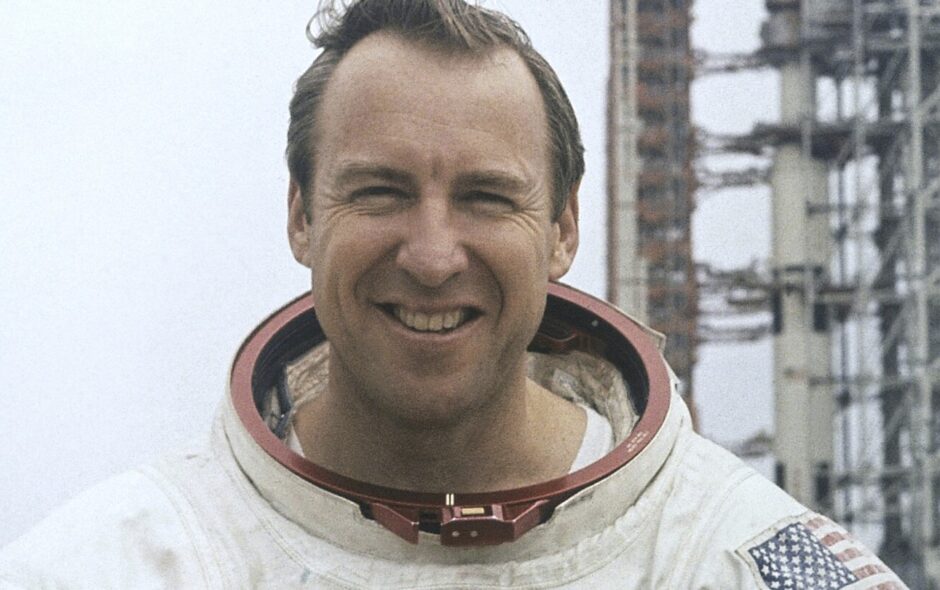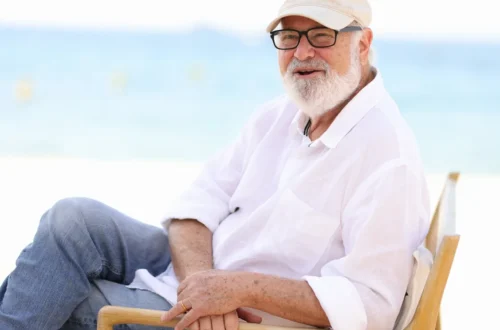James A. Lovell Jr., whose steady voice and unshakable calm guided the crew of Apollo 13 through one of NASA’s most harrowing moments, has died at the age of 97. For those of us who grew up in the shadow of the Moon race, his name is not just a footnote in history but part of the living memory of an era when the United States dared to push past the edges of what seemed possible. His life was a testament to that shared ambition, and in remembering him, we remember a time when “we” meant all of us — a nation holding its breath as our astronauts reached for the stars.
We met Jim Lovell in the early 1960s, when he joined the second class of astronauts chosen by NASA. He was a Naval Academy graduate, a test pilot, and a man with the kind of quiet confidence that seemed made for spaceflight. We saw him strapped into the cramped Gemini 7 spacecraft in 1965, orbiting Earth for 14 days in what was then the longest-duration spaceflight ever attempted. We learned from him and his crewmate how to endure the isolation, the physical strain, and the focus required to live and work in orbit. That mission, with its first-ever space rendezvous alongside Gemini 6, was one of the essential building blocks for the Moon landings to come.
The next year, we watched him command Gemini 12, the final mission of that program. While his crewmate perfected the art of working outside the spacecraft, Lovell demonstrated the skill and composure that would define his career. He was already being called one of NASA’s most reliable hands — a commander who could be trusted to guide a mission through any challenge.
And then came December 1968. We watched with awe as Lovell, Frank Borman, and Bill Anders became the first humans to leave Earth’s orbit, travel to the Moon, and circle its desolate surface. From Apollo 8, they sent back the now-iconic “Earthrise” photograph, showing our home as a fragile, blue-and-white sphere floating in the blackness. For many of us, that image was the first time we truly saw ourselves — all of us — as part of one small, shared world.
But it was April 1970 that would cement Lovell’s place in history. Apollo 13 was meant to be his fourth spaceflight and his crowning achievement: a landing in the Fra Mauro region of the Moon. Instead, two days after launch, an oxygen tank exploded, crippling the spacecraft. We heard his calm voice over the radio: “Houston, we’ve had a problem here.” Those words became a turning point. What followed was a tense, improvised fight for survival as Lovell, Jack Swigert, and Fred Haise worked with engineers on the ground to jury-rig solutions and conserve dwindling power, oxygen, and fuel. For four days, we waited and watched as the crew swung around the Moon and made their way back home. Against daunting odds, they splashed down safely in the Pacific. We called it a “successful failure,” but it was more than that — it was proof that ingenuity and teamwork could bring us back from the brink.
Lovell retired from NASA and the Navy in 1973, but his presence never faded. We read Lost Moon, his memoir of Apollo 13, and saw his story told in the 1995 film Apollo 13, where Tom Hanks brought him to the screen. In the movie, as in life, Lovell’s leadership was quiet but unwavering, his humor intact even in crisis.
We also saw the man behind the missions — the husband who credited his wife, Marilyn, for holding their family together during the years of danger and uncertainty, the father who returned from space to a house full of children who had watched every launch and prayed through every reentry. Marilyn died in 2023, ending a 70-year marriage that was itself part of the Apollo legacy.
With Lovell’s passing, we lose not only a pioneering astronaut but one of the last living links to the first age of lunar exploration. His career spanned the arc of America’s space ambitions, from the experimental flights of Gemini to the high drama of Apollo. For those of us who followed his journeys, he will always be Commander Lovell, the man whose steadiness in the most perilous hours reminded us of what we can accomplish together.
And now, as we once again prepare to send astronauts to the Moon, we carry with us the lessons he taught: that success is not measured only by reaching the goal, but by how we respond when the goal seems lost; that leadership means keeping faith with your crew, your mission, and your country; and that even in the darkest void, there is a way home if we work together to find it.
We remember him with gratitude, pride, and the quiet knowledge that his example belongs not just to history books but to us all.




